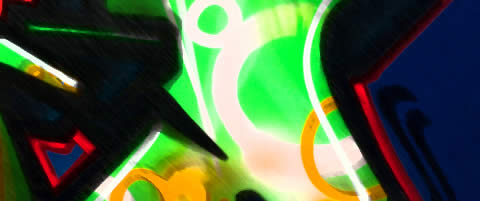
Torrey Riley, 14,
Dillard University Upward Bound, New Orleans, LA
Everyone makes mistakes in life; some may be small and the others very big. Mistakes are a part of being human; no one can be perfect in the world. Even though mistakes are not great, they can also help you become a better person. I have had many mistakes in my young age. Some were severe. The worst was when I took a step down from being a leader to becoming a follower. Two of my friends and I rode our bikes to Academy Sports & Outdoors. When we arrived there, we walked around the store acting all normal, but we had plans to steal a BB gun. We all split up. I went to the sports section, one friend went by the clothes, and the older cousin went by the guns, to get the gun. When my friend got to the gun section, he picked up a BB gun and hid it so that he could cut the plastic open and take the gun out. He put the gun in his pants, then met back up with us in the front of the store. The younger cousin tried to make it seem like we hadn’t come in the store for nothing, so he got a drink and stood in line to purchase it. But as soon as he could purchase it, a man came up behind us and said, “You’re not in trouble, but you must come with me.” We walked in the back to his office. He was a red-faced, heavy weight, the head security manager.
As we walked in, he told us to take a seat and asked where the gun was. We all stayed silent, scared for our lives. Then the manager put the plastic the gun had been in on the table and asked again, “Where is the gun?” The older cousin finally took it out and put it on the table. The manager started to ask why we had taken it and did we know how much trouble we could be in. After listening to our answers, he called our parents to come to the store instead. When our parents arrived, the manager told them what had happened. We could go to jail for this, he said. The manager told them we wouldn’t because we had been very polite and told the truth about everything. That day the manager could have easily called the police to take us, but instead he called our parents so that we could fix our mistakes. That mistake really helped me. It taught me a big lesson on how to watch what you do and who you hang with, because you’re always being watched, even if you think you aren’t. Mistakes will follow you everywhere you go in life, but it’s all on you to embrace your true mistakes.
Karl Scheel, 19
Abraham Lincoln High School, Philadelphia, PA
Believe it or not, the perfect student is not actually so perfect. A student who gets good grades and excels in school academically does not always get things right the first time. A good student is only a good student because they are able to work with their mistakes and improve their deficiencies. Personally, I have experienced a new world through transcending the biggest mistake of my life.
After attending the most prestigious high school in my city for half an academic year, I transferred out because of my sub-par grades. I thought I was preserving the integrity of my high school portfolio by taking away the only challenge in my life. Eventually, I ended up dropping out of school completely. I did not attend school for my sophomore year, adding two semesters to my academic deficit. At the end of the summer of my sophomore year I realized I had made the biggest mistake of my life. Without an education, I would not be able to achieve anything, including my biggest dream.
It was a humid September morning in Philadelphia in 2008, and I was about to enter Abraham Lincoln High School through the lunchroom doors and finalize my re-enrollment into high school. Each face that I glanced at evoked as much familiarity as an individual blade of grass; I was completely lost. I found myself fumbling with my new roster, trying to navigate a labyrinth of corridors. I was sixteen years old, with fractions of a credit, two years behind everyone else my age. My decision to go back to school seemed like another mistake. Confused as to where I was supposed to be and what I was supposed to be doing, I sought out the name at the top of my roster, Jacqueline Burton, my academy coordinator. Although this was only the first time I met the math department chair, who is also the National Honor Society Sponsor, the Honors coordinator, the credit recovery liaison, and the head of the Law Academy, she had already planned out my road to rejuvenation.
It is a brisk May afternoon in 2011. I am standing here anticipating receiving my third report card for my senior year and I already have enough credits to graduate. A typical student earns seven credits each year, but over the course of two years, with the support of staff and encouragement of a fellow student, I earned 22 credits. Presently, I am the cadet commander of the Air Force Junior Reserve Officer Training Corps Unit at my school, the captain of the Boys Varsity Volleyball team, a member of the National Honor Society, recipient of the Philadelphia School District’s Superintendent Arlene Ackerman Award for Excellence, recipient of the perfect attendance award, and soon to
be eleven-time distinguished honor roll recipient. I am expecting to graduate amongst the top ten of my class. I have achieved the unachievable. I have beaten the odds. I am no longer a statistic; I am a high school graduate.



